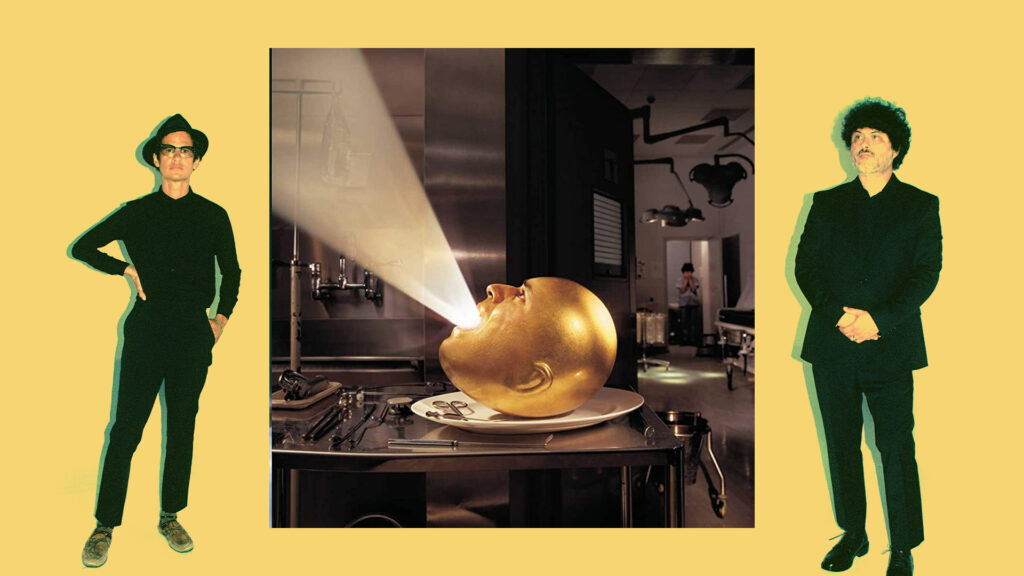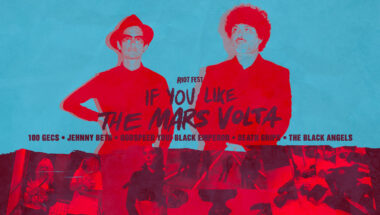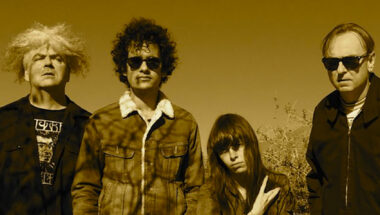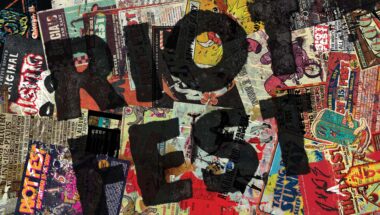When At the Drive-In called it a day in 2001, no one was sure what would come next. They were arguably at the height of their powers, with “One Armed Scissor” in regular rotation on MTV2 and 2000’s Relationship of Command garnering critical acclaim. Produced by Ross Robinson (Slipknot, Korn) and featuring guest appearances by punk lifer Iggy Pop, the album was primed to launch them into the stratosphere, but not everyone was creatively fulfilled.
After seven years, frontman and lyricist Cedric Bixler-Zavala felt constrained by hardcore and wanted to take his songwriting in bold new directions. Meanwhile, guitarist Omar Rodríguez-López couldn’t shake the notion that Relationship of Command was too slick and didn’t capture their live energy, telling Alternative Press it remains “the one record I, still to this day, cannot listen to.”
Stuck in a rut, the duo focused their energy on De Facto, an experimental dub reggae group that started off as a series of jam sessions featuring Bixler-Zavala on drums, Rodríguez-López on bass and Isaiah “Ikey” Owens and Jeremy Ward on keyboards and synths. After a prolific year, where they released two albums and two EPs, there was no question that they were onto something with this progressive new sound.
Their vision was fully realized with the addition of bassist Eva Gardner and drummer Jon Theodore to the lineup, allowing Bixler-Zavala and Rodríguez-López to get back to lead vocals and guitar. This new band was dubbed The Mars Volta and erupted out of the gate with EP Tremulent, quickly building buzz around their powerful songwriting and chaotic live shows.
Then, twenty years ago today, everything changed with the release of their debut album, De-Loused in the Comatorium.
If you’ve been following their career at all, you know The Mars Volta has never done anything small. For their first full-length album, Bixler-Zavala and Ward teamed up to write a sprawling, epic story about a protagonist named Cerpin Taxt. Following an overdose, Taxt goes into a coma and experiences a brutal, horrific dream world before returning to reality and taking his own life. It’s a harrowing, emotional journey inspired by the true story of their friend, El Paso-based artist Julio Venegas.
It was ambitious and cinematic, closer to a prog-rock epic like Rush’s 2112 than anything by the hardcore bands they came up with. There were flailing drum fills, walls of distortion and a song that stretched past the 12-minute mark. Though they maintained their punk work ethic, this was something else entirely.
While Rodríguez-López probably could have easily produced the project himself (as he would for all of their future albums), The Mars Volta brought in A-list producer and Def Jam co-founder Rick Rubin for extra guidance. It proved to be more challenging than they expected. With a shaman-like approach and an open-mind towards all genres, Rubin had helped Danzig, Beastie Boys and Johnny Cash record some of the greatest albums of their already-legendary careers. At the same time, artists like Slipknot, Black Sabbath and U2 struggled to connect with his bare-bones approach to recording.
In a 2008 interview with The Aquarian, Bixler-Zavala shared the difficulties that came with Rubin’s approach to their complex, meticulously planned material.
He’s [Rubin] got this thing about representing the common man’s ears. I’d rather jab the common man’s ears. If we don’t, we’ll never get to a place where future music exists.
Bixler-Zavala, in The Aquarian
But, as we all know, conflict can produce great art. This push-pull tension provided some of the albums most thrilling (and sometimes punishing) moments, from straightforward, undeniably Rubin-approved riffs to moments of wild, dissonant noise that feel downright defiant. The Mars Volta had the guts to go into the studio with one of our lifetime’s most famous, influential producers and say, “Actually, we’re gonna do it our way.”
If there was one benefit to working with Rubin, it was getting an introduction to some of his frequent collaborators. While Bixler-Zavala, Rodríguez-López and Ward led the creative charge, Flea filled in for Gardner on bass and his Red Hot Chili Peppers bandmate John Frusciante played guitar on “Cicatriz ESP.” If that wasn’t enough, Beck’s music director Justin Meldal-Johsen contributed stand-up bass on “Televators.”
Upon its release, De-Loused in the Comatorium left some fans scratching their heads. If you weren’t following their journey from De Facto or hadn’t listened to Tremulant, this album felt like a major left turn from the guys who recorded “One Armed Scissor” and “Arcarsenal.”
Nonetheless, those who got it, got it. This wasn’t anything like the post-punk revival and nü metal that was dominating rock radio at the time, and audiences were ready for rock bands to take creative risks again. The four-star review from the Los Angeles Times picked up on their Pink Floyd, Genesis and King Crimson influences – something that wasn’t exactly trendy at the time. Then, Alternative Press and Spin gave it a perfect score, raving that the band “creates tension from the cryptic and release from the inexplicable.”
As new generations of fans discovered the album and embraced its musical descent into madness, De-Loused in the Comatorium‘s legend grew over the years. The band would even release the unfinished, pre-Rick Rubin demos as Landscape Tantrums in 2021, giving listeners a peek behind the curtain when these songs were even more ragged and abrasive. It’s still the band we would grow to love, just with more of At the Drive-In’s hardcore tendencies.
De-Loused in the Comatorium was the beginning of something amazing. The Mars Volta went on to release seven more albums and, with last year’s critically acclaimed self-titled LP and a sold-out reunion tour, cement their legacy as some of this century’s most influential rock bands.
Be there when The Mars Volta plays Riot Fest on Sunday, September 17. Single day tickets are available now!
De-Loused in the Comatorium
- Here to Stay
- Eventually
- Everybody but You
- Fake It
- Half Empty
- Just Sound
- Act Like That
- Where Were You
- Sundress
- Some Minds Don’t Change
The Mars Volta @ Riot Fest 2023
The Cure, Godspeed You! Black Emperor, Ride & More
September 15-17



